Vision Statement
The Town of Ogunquit last adopted an updated Comprehensive Plan in 2003. Then, as now, the Town faced the challenges of growth and change, including “the capacity of the community to be a gracious host and to maintain the quality of life for both the resident and the visitor.”
The future of Ogunquit depends on how ably the town, working with its neighbors, addresses and mitigates the threat of climate change and sea level rise – a threat brought home by the devastating storm of January 13, 2024. Praised and valued for the beauty of its beach, Ogunquit faces some hard choices as it balances leading- edge management of the environment, key to a resilient and sustainable town, with decisions on spending, development, traffic flow and the preservation of its history.
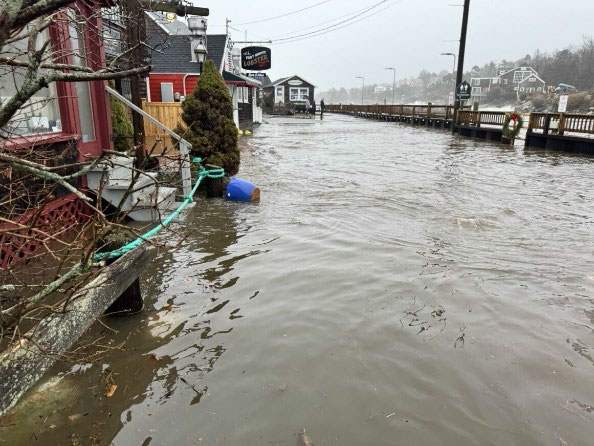

Ogunquit’s future and its approach to the existential threat of climate changeand sea level rise are inextricably linked.
The Town is best known for its beach, Perkins Cove and the Marginal Way -major attractions all endangered by a possible sea level rise of almost 2 feet by 2050. In the Town’s 2022 consultative survey, replies ranked “Maintaining a healthy beach and estuary” as a top priority. The beach is also a principal source of Town revenue through the related parking lots. The Ogunquit of tomorrow, working in well-established partnerships at State and local level, will have identified those areas most at risk and clearly communicated the resulting action plans to the community.
Ogunquit will combine investment in infrastructure and technology with nature-based solutions to manage and protect the Town’s most vulnerable areas.
Alternative energy sources, such as solar panels and heat pumps, will be encouraged in new buildings and used in existing structures wherever possible.

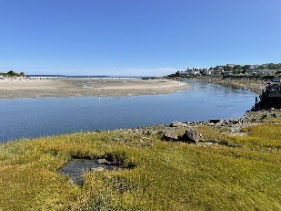
The Town will be reducing its own carbon footprint and promoting a “greener”, more sustainable Ogunquit through judicious use of incentives combined with tighter ordinances and effective enforcement. Alternative energy sources, such as solar panels and heat pumps, will be encouraged in new buildings and used in existing structures wherever possible.
Wherever feasible, the Town will replace trees it cuts down with native species such as the northern red oak, facilitating carbon capture. Dark Sky lighting will become the norm for Town-managed lights and for commercial and residential development. Rural and waterfront areas, including coastal wetlands which act as blue carbon reservoirs, will be protected from the impacts of development. Local and area businesses, partnering with the Town, will provide reliable, affordable public transport during the ever-lengthening tourist season.
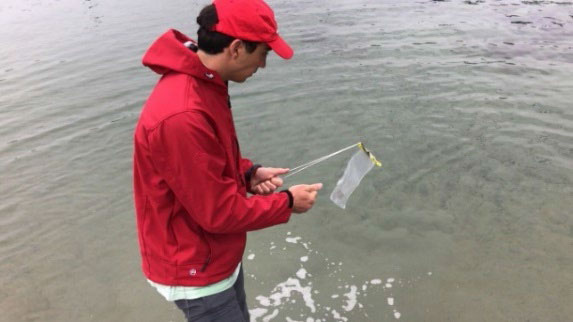
The beach, the Marginal Way and Perkins Cove are, after all, at the heart of Ogunquit’s identity and will remain so.
Tomorrow’s Ogunquit will give its highest priority to addressing and, as far as possible, mitigating the effects of climate change on its natural, water and marine resources, as well as on local infrastructure, residents, and businesses. The beach, the Marginal Way and Perkins Cove are, after all, at the heart of Ogunquit’s identity and will remain so.
Cherishing Ogunquit’s Charm
The Town will demonstrate a reinvigorated approach to identifying and protecting its historic resources – sites, landmarks, and structures – and encourage their preservation through working with commercial and private owners. Overarching partnerships between the Town and organizations will make it easier for everyone to learn more about Ogunquit’s past, including its rich artistic traditions which continue to the present day, and participate in the stewardship of Ogunquit’s future.
The downtown village and shore Road will retain their “small town” feel, with individual businesses and restaurants. New and updated local ordinances, approved by voters, will ensure that the scale, design, and density of any new developments will be in keeping with Ogunquit’s well-established profile.
The modern municipal campus, which references the beloved Ogunquit Village School in its design, will be an established feature of the Town’s landscape and provide a welcoming, park-like environment with much-needed space for children’s outdoor activities.

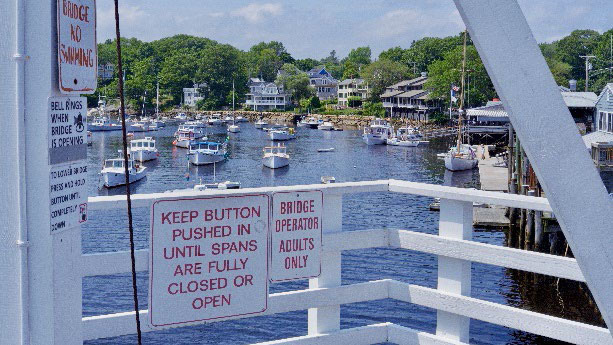
Perkins Cove will continue as a working lobster and fishing boat harbor, with a mix of new and longstanding family businesses, shops and restaurants. An ADA-compliant, re-imagined pedestrian footbridge will broaden the opportunities for residents and visitors to enjoy the Cove’s iconic views. The local business association, Perkins Cove 03907, will continue to organize seasonal events and promote the Cove and its artistic heritage as an to the Marginal Way.
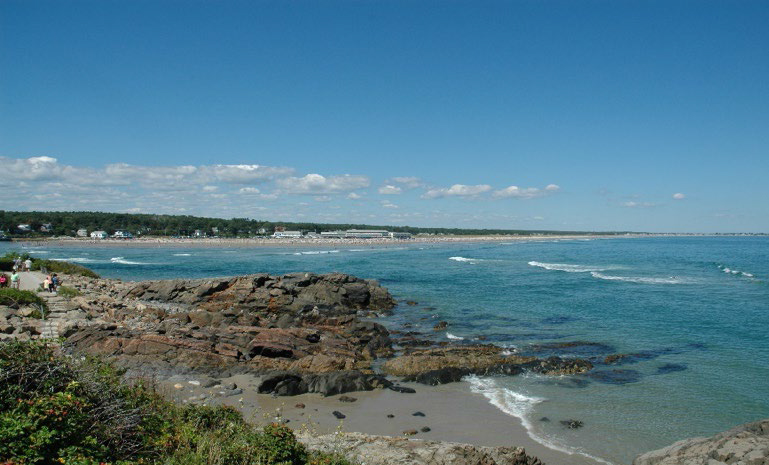

Making Ogunquit Work
In 2003, traffic was the top issue in the community survey. It remains a concern in the widest sense, both in managing vehicle traffic more efficiently and effectively and in offering practical, sustainable alternatives to the car. For the Ogunquit of tomorrow, a transportation plan, aligned with regional and State initiatives and with improved public transport options, will address several priorities.
Residents benefiting from the Town’s “Aging in Place” strategy will have easier access to medical facilities and
shopping centers. Seasonal workers, who may well be staying in neighboring towns, will get to and from their places of employment safely and on time. Visitors won’t have to wait in line to park at the beach but can leave their cars in a satellite lot and go into town by shuttle. There will be a year-round connection between the Wells Regional Transportation Center and designated pick-up / drop off points in Ogunquit and neighboring towns, supported at regional and State level. Road improvements will be made to enhance the safety of cyclists and pedestrians.

The Town will be considering new initiatives, including public/private sector partnerships, to support developments integrating workforce and affordable/senior housing and implementing the requirements of Maine’s new housing law, Maine Statute Title 30-A, Chapter 4364-B, also known as LD 2003.
“There’s no place like home,” as the saying goes, and in 2020, when Maine became the second most popular state to move to, Ogunquit was one of the two most popular towns for new arrivals. Given the rising cost of housing, tomorrow’s Ogunquit recognizes the importance of facilitating a more inclusive approach to housing development, particularly affordable housing, to meet the needs of residents and the workforce. Participation in local and/or regional housing coalitions will be a key part of this strategy, aimed at accommodating young families, seasonal workers who are essential to the Town’s tourism-based
economy, and seniors needing to downsize.
The Town will be considering new initiatives, including public/ private sector partnerships, to support developments integrating workforce and affordable/senior housing and implementing the requirements of Maine’s new housing law.
A further challenge for tomorrow’s Ogunquit is the future of short-term vacation rentals, which perceived as having an adverse effect on established neighborhoods. The Town will consider restricting these rentals to specific zones.
Concurrently, and in discussion with neighboring municipalities, Ogunquit will encourage longer-term rentals as options for seasonal workers or individuals/families working from home.
Good Governance
The greatest challenge will be to address the financial implications of sea level rise, with the potential for reduced parking fee income having an adverse impact on taxes. When even a “wet weekend” can reduce revenue by
$50-80,000, a more significant loss of income will require identification of alternative revenue streams. The Town will continue to be transparent and consultative as it develops these options and considers alternative mechanisms to support economic development.

The Ogunquit of tomorrow has put in place an Implementation Committee, ensuring that the Comprehensive Plan, as adopted by the voters, remains a living document and a standard for the Town’s priorities and actions.
The Town is aware that noble ambitions, however well expressed, require direction, momentum and accountability. The Ogunquit of tomorrow has put in place an Implementation Committee, ensuring that the Comprehensive Plan, as adopted by the voters, remains a living document and a standard for the Town’s priorities and actions.
In Conclusion
